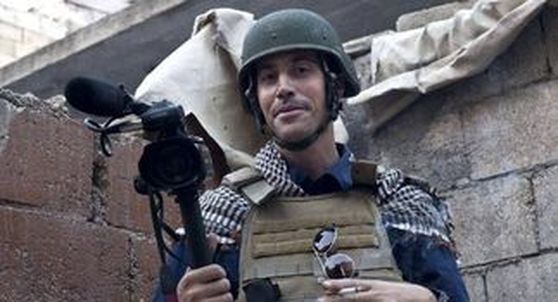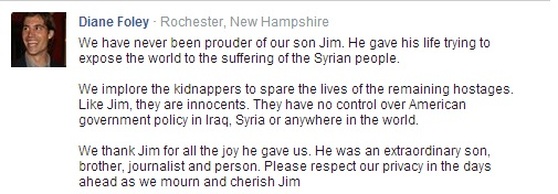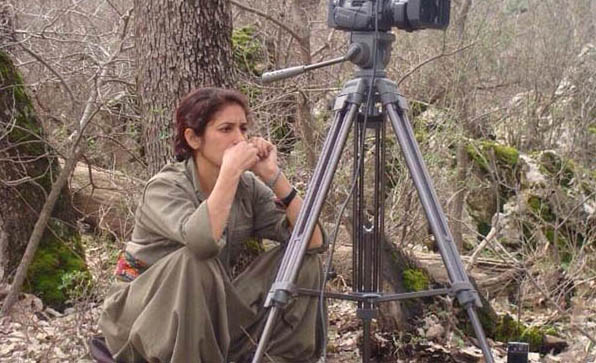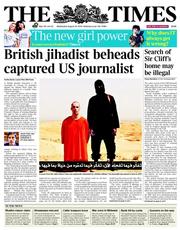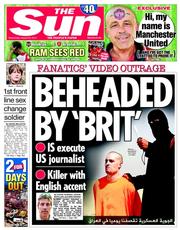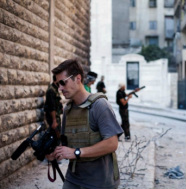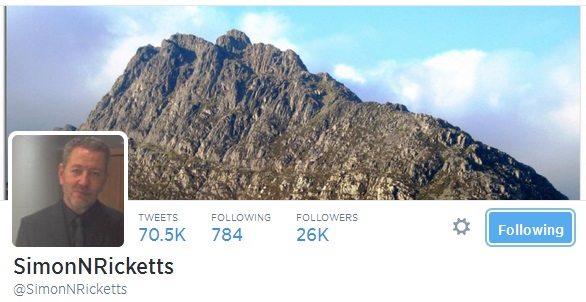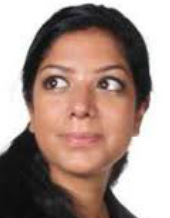The murder of James Foley'I wish I had more time, I wish I could have the hope of freedom and seeing my family once again, but that ship has sailed'James Foley was taken hostage in Syria on November 22, 2012 - Thanksgiving Day - and killed in a Middle Eastern desert on August 19, 2014. The Islamic State group posted a video showing the murder, which was carried out by a man with a British accent.
Foley had been reporting from the region for five years and in 2011 he was arrested and held prisoner in Libya for 44 days. The video below is of a homecoming television appearance in which he talks about his life and work. When he was captured for a second time - in Syria - it was thought that Foley may be being held with fellow American Austin Tice, who was kidnapped two years ago this week, three days after his 31st birthday. The two families have been in close contact over their missing sons and a prayer vigil was held to mark the second anniversary of Tice's disappearance.
We still do not know what has happened to Tice, but now another American journalist - Steven Sotloff - has been put on display in an orange robe and had his life threatened on video. James Foley and Austin Tice both feature on the SubScribe World Press Freedom Day page. Sotioff, a freelance who had worked for Time magazine and the Christian Science Monitor, is not there because his family had been advised not to publicise the fact that he had been kidnapped in Aleppo last August. We have so many special 'days' that those with a truly special meaning tend to get lost in the crowd. World Press Freedom Day was inaugurated by the UN and is marked on May 3. This year it was dominated by the plight of Peter Greste, Mohamed Fahmy and Baher Mohamed, who were imprisoned in Egypt merely for working for Al Jazeera. [They were subsequently jailed for eight and ten years for doing their jobs and all have today formally lodged their appeals.] But the day also offered an opportunity to highlight other journalists who had been imprisoned, kidnapped or even killed while trying to do their jobs. At the time, 20 journalists and media assistants had died in the course of their work since January 1. Today that toll stands at 43 journalists and 8 media assistants. This does not include Foley, since Reporters Sans Frontières includes only those whose deaths have been confirmed - and the Isis video has yet to be authenticated. The list does, however, include six killed this month, the most recent being Simone Camilli, below, an Italian video journalist with AP who died along with his Palestinian translator in an explosion while covering the Gaza conflict last Wednesday. 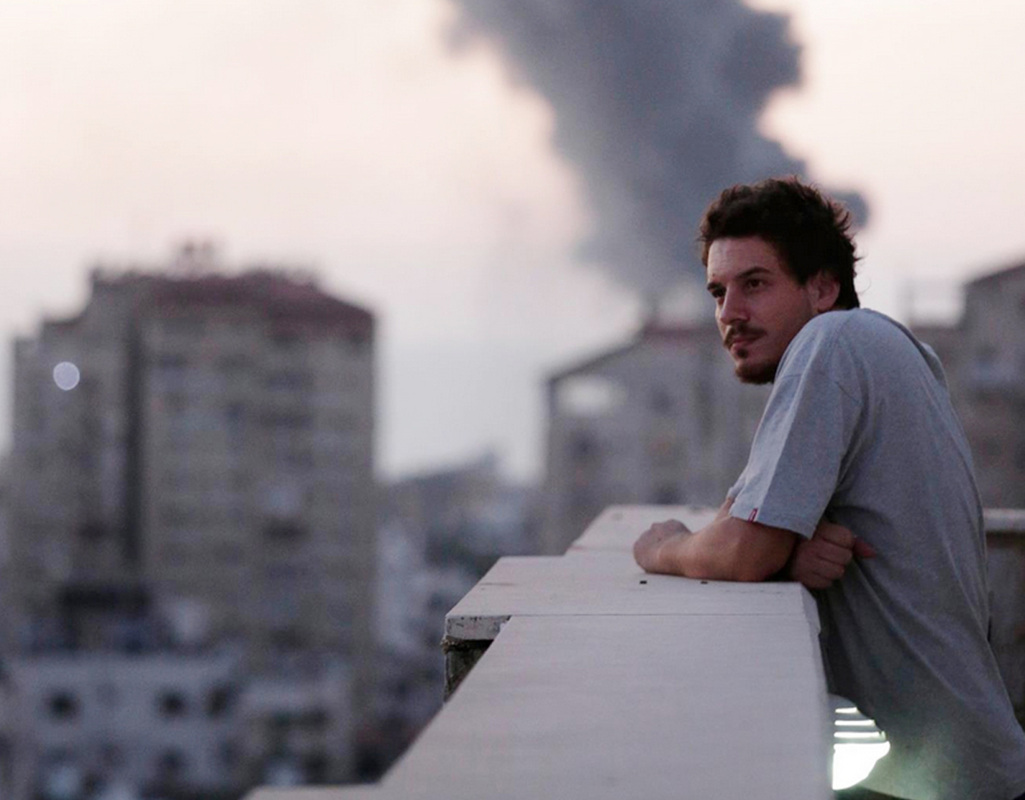
Why have the recent deaths in Gaza and Ukraine failed to penetrate our consciousness while that of Foley commands attention? Because they were foreign and we can't pronounce most of their names? Because Foley was American? Because his killer was apparently British? Because of the brutality of the murder? Because it was captured on video? Because he had already suffered nearly two years as a hostage? All of these points go some way towards explaining the prominence of the killing in today's newspapers and on radio and TV. But the real reason for the interest was not that a journalist had died - he could as well have been an aid worker, a contractor or a banker - but the video's chilling message: that Isis was declaring war on the West, as Philip Hammond put it, and that British jihadists were ready to participate on the "other" side. These are issues of international policy that do not generally concern SubScribe, which is a website about journalism. So the global significance or otherwise of Foley's death should not set him apart here. His loss to the journalistic community is surely no greater or less than that of Camilli, Leyla Yıldızhan, below, (a Kurdish reporter killed on August 8) or Abdallah Nasr Fahjan ( a Palestinian sports reporter killed in Gaza on August 1) We tend to be so preoccupied with our domestic agenda that we fail to pay full attention to the threats to our fellow professionals and press freedom elsewhere.
Yesterday's Sun, with its prurient front page and titillating teaser to an online video, and the charging of yet another of its journalists as a result of the Weeting-Eleveden-Tuleta investigations left SubScribe in despair at the state of the profession/trade/industry. Ryan Sabey, who was charged yesterday and will appear in court tomorrow, was named young journalist of the year in the 2004 press awards when he worked for the News of the World. His paper took the newspaper of the year title, largely on the back of a series of scoops under the leadership of Andy Coulson, who paid tribute to his "dedicated and unique" staff. The judges were impressed. They said the paper had had “a cracking year” and praised it for its “vitality, originality and leading the way with some of the biggest stories of the year”. These included David Beckham's fling with his personal assistant Rebecca Loos, Sven Goren Eriksson and the FA secretary Faria Alam, and - the clincher - the disclosure of David Blunkett's affair with a married woman. Of course we know now that much of this work was tainted - which is not to conclude that Sabey was guilty of any malpractice - but even at the time, there was disquiet that coverage of events such as the Beslan massacre and the Boxing Day tsunami had been overlooked in favour of a series of sex scandals. And that's exactly what our business - and SubScribe - have continued to do: we have become so mired in the slimiest and silliest journalistic activities that the most dedicated have been ignored. Today journalists are naturally eager to line up with the Jim Foleys rather than the Clive Goodmans. Is that a justifiable stance? Can we legitimately associate ourselves with the former while dissociating ourselves from the latter, when in fact the great majority of us have little to do with either end of business? How much have we learnt, how far have we come in the decade since the News of the World's sex scandals were held up as the pinnacle of British newspaper journalism? Not far enough. The Sun and the Star are still banking on the word "sex" to sell their papers; the Mail is still banking on provoking outrage, the Express on older people's greed and fear. And if we do "proper" journalism does anyone read it? The Guardian canters around on its high horse, not worrying too much who gets splattered with poo along the road; the Independent takes a brave and lonely path - and is losing sales faster than anyone but the Star and the FT. We can at least read its best efforts in the i, the success story of recent years, although even that is seeing circulation decline. Then we have newspaper equivalents of floating voters - the Telegraph, Times and Mirror. One day they'll be all pop and consumerism, the next it's politics and poverty. The Mirror does some great work, important stories presented in a readable and understandable way (as does the Sun when it puts its mind to it). But do people know? Are left-leaning people aware that they're allowed to watch soaps and laugh at vans that smash into Specsavers as well as care about the fate of the NHS - and that there's a paper that caters for them? It may seem that - like politicians - journalists cannot shake off that "they're all the same" label; a disreputable bunch of drunks churning out rehashed handouts interspersed with pictures of celebs in various states of undress and ballet dancers.
But all of our papers have real grown-up journalists working for them; all have good writing somewhere. Yes, even the Sun and the Star. Last night David Taylor of the Times, David Usborne of the Independent and Christopher Bucktin of the Mirror were among journalists tear-gassed while covering the protests in Ferguson, Missouri. The policeman in the picture above is pointing his gun and shouting at a journalist. America isn't a warzone, these US editors would not expect to have chemical weapons used against them during the course of their duties.They filed their copy, they'll recover and, when the protests die down, get back to the day job. For others, like Foley, risking life, limb and sanity reporting from danger zones is the day job. We remember Marie Colvin, we lit candles for John McCarthy during his five years as a hostage in Lebanon, we have heard Alan Johnston's account of his four months of captivity after being kidnapped in Gaza. Only this year, James Hill and Anthony Loyd of the Times were snatched by a man they believed to be their friend . On days like today the world suddenly cares about the fate of a journalist. It may do so only because he met his death in a symbolic robe at the hands of a masked British man in black. It may do so because he was American. Whatever anyone else's reason, journalists care because he was one of "us". We mourn not only James Foley, but those others whose deaths we may have overlooked. And as we hope - and possibly pray - for the release of Austin Tice, Peter Greste and the rest, maybe we will remind ourselves that ours is an honourable calling and that we have a duty to follow it honourably. Whether we're writing about Kalashnikovs or Kardashians. |
|
Further reading

On a private Facebook page for those of us who work and report inside Syria, the tributes were swift and eloquent. Reporters blacked out their profile photos in solidarity with our slain colleague. But the real question many of us are wondering is: how do we continue to do this kind of work when barbarians like the Islamic State reward us with kidnappings, beheadings, imprisonment, rape?
- Janine di Giovanni in Newsweek 
We shared a cell for two and a half weeks, and every day he came up with lists for us to talk through. Top 10 movies. Favorite books. The fall of the Roman Empire and the rebirth of Western civilization. Which famous person would you most like to meet? What’s your life story? How does war change you? How can we be better people when we get out of here?
When I was in tears after a six-hour interrogation that ended at sunrise, he observed matter-of-factly, “It’s their job to break you. They did it to you today, and they’ll do it to me tomorrow. Get some sleep.” - My friend James Foley by Clare Morgana Gillis on Syria Deeply Honest, brave, humanitarian reporting is the enemy of dictators, hypocrites and religious zealots, which is why even if you had never met or heard of James Foley you should view this as a tragedy
- Sophie McBain New Statesman When people say 'Journalists are scum,' I'd like you to think of people like James Foley. He was trying to shine a light on the suffering of people in desperate circumstances. People who are too busy trying to survive rather than call people names.
When people say 'The media is not looking at [x],' then think of James. He was looking while you weren't. While you didn't have to. Putting himself in severe and real danger. To bring the truth that he could. As much as he could... When you learn of war, injustice, suffering, destruction, and you decide your opinion on it, bear in mind that you learned the facts - most of them - from journalists. Journalists like James Foley - Simon Ricketts Twitter tribute 
This journalist, Foley who was beheaded, I watched the video. Something shifted in me. This wasn't Lee Rigby's mentally unwell killer. This was someone from us - who killed this innocent journo. This killer wasn't part of a resistance against oppression. This wasn't an aggrieved Chechen, a tortured Bosnian or persecuted Uyghur. He wasn't a brainwashed convert sucked into one of the MI5 Hizby cults. This wasn't someone demanding his rights or fighting back against drone strikes or territorial grabs or Israeli ethnic cleansing. Foley's killer had slaughtered an honourable man in cold, calculated, lucid terms...
This Foley was an innocent man who sought to expose wars of aggression against Muslims - there is nothing that separates us. 'Only Connect' - and with it comes the realisation that we are all closer to Foley than IS - Habiba Hamid Facebook tribute |
Please sign up for SubScribe updates
(no spam, no more than one every week or two)
|
|
|

